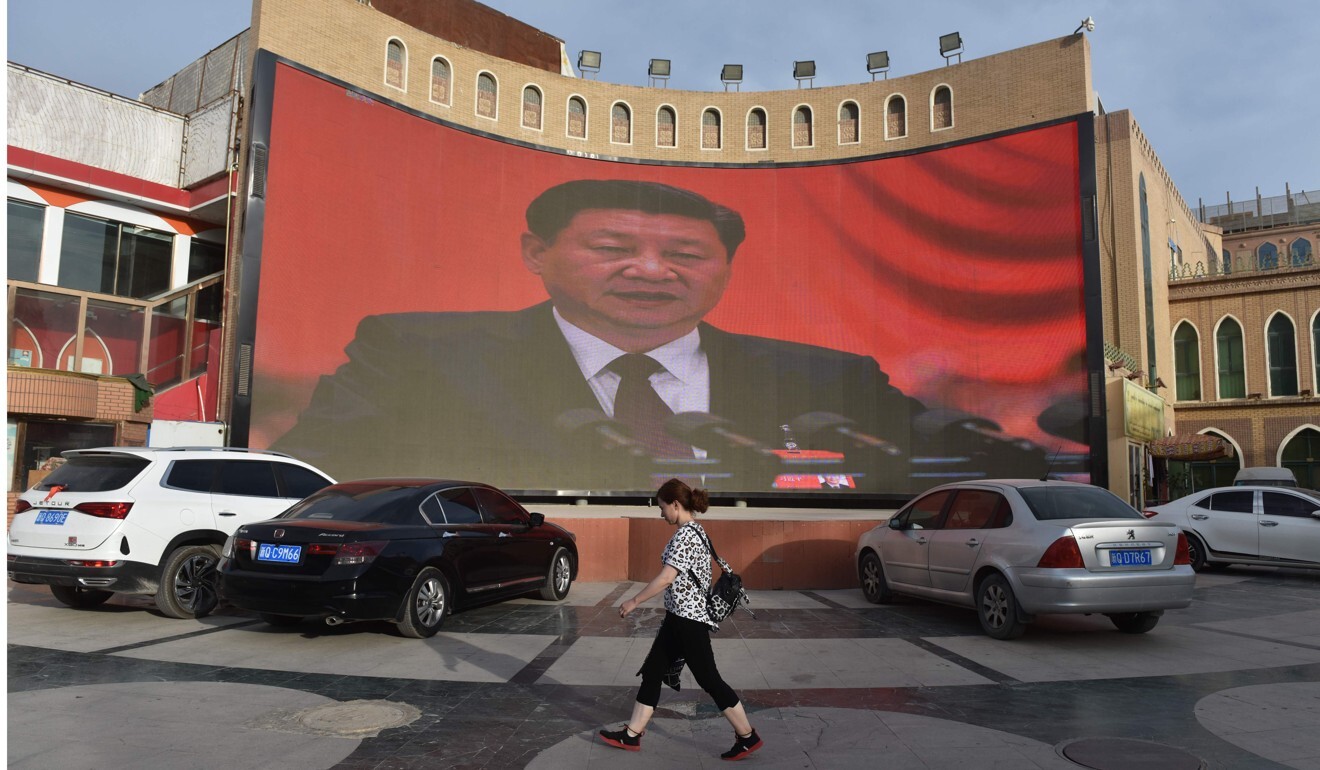
‘A new direction’: is China shifting focus to economic opening-up in Xinjiang and Tibet?
- Key meetings suggest Beijing is gaining confidence about social control in the two politically sensitive ethnic minority regions
- But although there is talk of development, analysts do not expect the leadership to cave in to Western pressure over its policies

China has signalled it may tilt its policy focus back to economic development in the politically sensitive regions of Xinjiang and Tibet, where it appears to be gaining confidence about its grip on social stability.
But analysts have questioned the extent to which Beijing will be able to open up the two ethnic minority regions if it continues its repressive measures around religion and culture, and whether it will be able to convince the outside world about its policies.
Beijing is facing international criticism over its treatment of minority groups in Tibet and Xinjiang, where it is believed to have detained at least 1 million Uygurs and other ethnic Muslim minorities in internment camps.
President Xi Jinping revisited the idea of including Xinjiang in the opening-up strategy for the west of the country at a key work conference on the region last month. He defended Beijing’s policies in the far western region and emphasised the need to build the local economy.
Days later, a senior official overseeing Tibetan and religious affairs wrote of an “orderly” opening up in Tibet after a policy meeting on that region was held in Beijing.

James Leibold, an expert on China’s ethnic policy and a professor at La Trobe University in Melbourne, said this year’s Xinjiang conference statement was mainly focused on the economy, with no mention of internment camps or the long-time challenge of “terrorism, extremism and separatism” to security and stability.
“There seems to be a renewed focus on the economy,” Leibold said.
According to Wu Chi-na, a historian on Chinese ethnic politics at the Institute of Modern History at Academia Sinica in Taipei, Beijing’s emphasis on opening up in both Xinjiang and Tibet set a different tone from previous policy meetings.
“It suggests sort of a new direction,” he said. “The economy and the Belt and Road Initiative would be among the opening-up measures.”
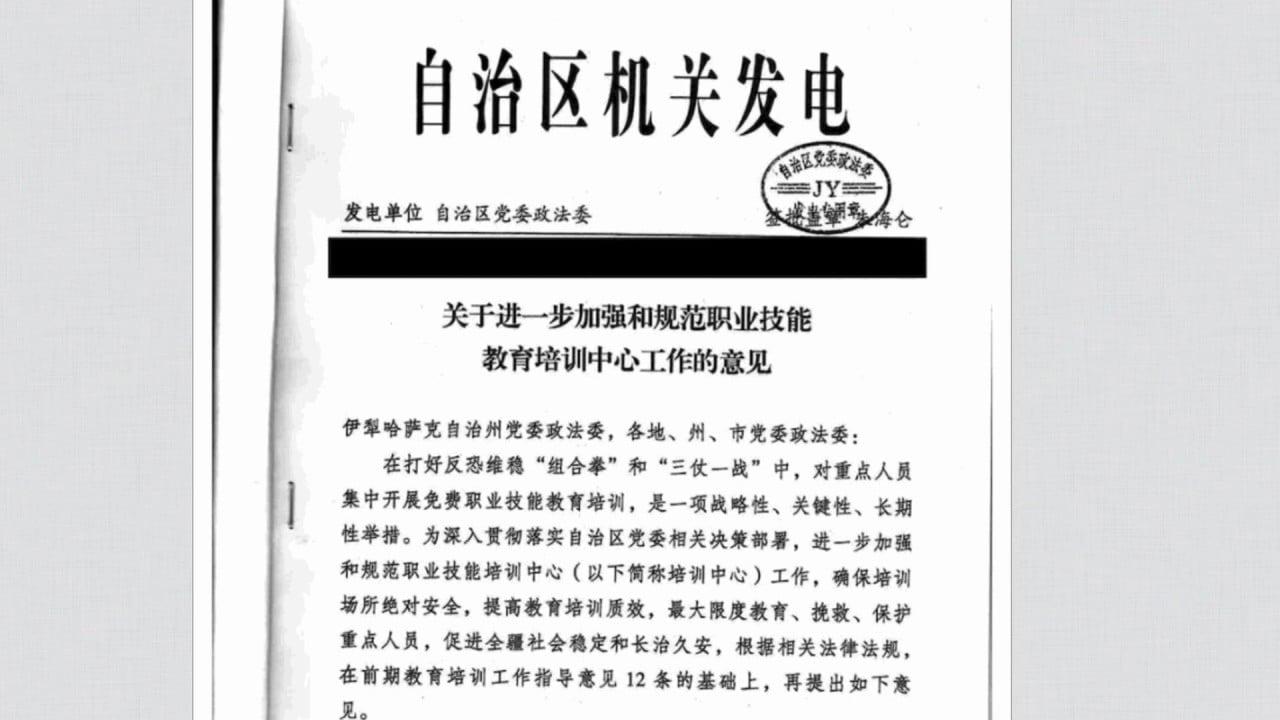
03:47
Leaked state documents describe repressive operations at China’s detention camps in Xinjiang
Shan Wei, a research fellow with the East Asian Institute at the National University of Singapore, also said the meetings showed a shift in policy on the two regions – going from “development for stability” in 2008-14 to “stability first” after a series of violent incidents and self-immolations.
Now, he said, the party was returning to the “development for stability” approach, and opening up.
“Beijing has gained sufficient confidence about its social control in the two regions,” Shan said, noting the tough measures rolled out by Chen Quanguo, who was in charge of Tibet from 2011 to 2016, then moved to Xinjiang.
Chen, a Politburo member, is among the Chinese officials sanctioned by the US because it deems them responsible for human rights abuses.
“Now that the Chinese economic focus is on [the domestic market], which requires mobilisation of nationwide resources to boost economic growth, Xinjiang and Tibet also need to contribute to this endeavour,” Shan said.
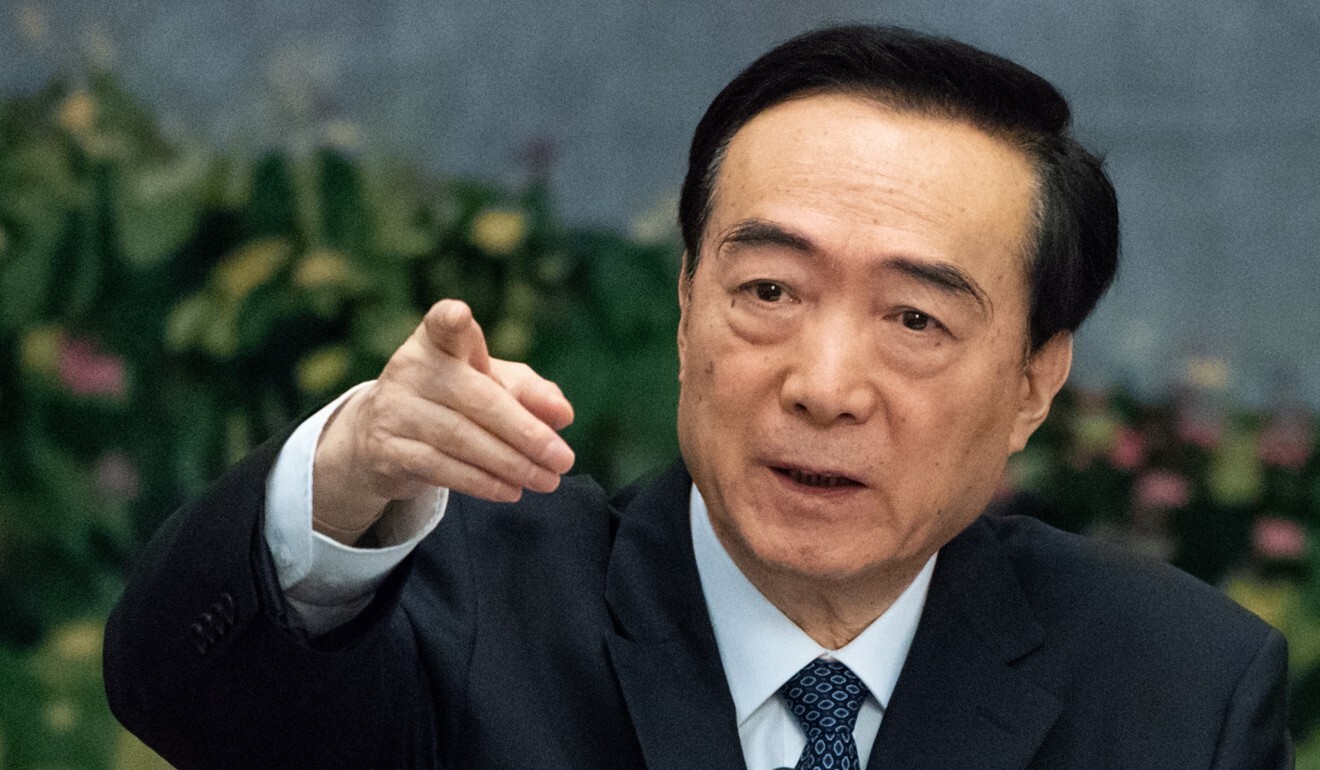
At the September 25-26 Xinjiang policy meeting, Xi said Beijing would “enrich, elevate and innovate” on the region’s opening-up by including it in the national strategy for the west and leveraging its strategic position in the Silk Road part of its belt and road plan.
Two days later, Zhang Yijiong, executive vice-minister and No 3 official of the party’s United Front Work Department, wrote in state-run People’s Daily that Beijing would “in an orderly way expand the opening up of Tibet to foreign politicians, businesspeople, experts and scholars”.
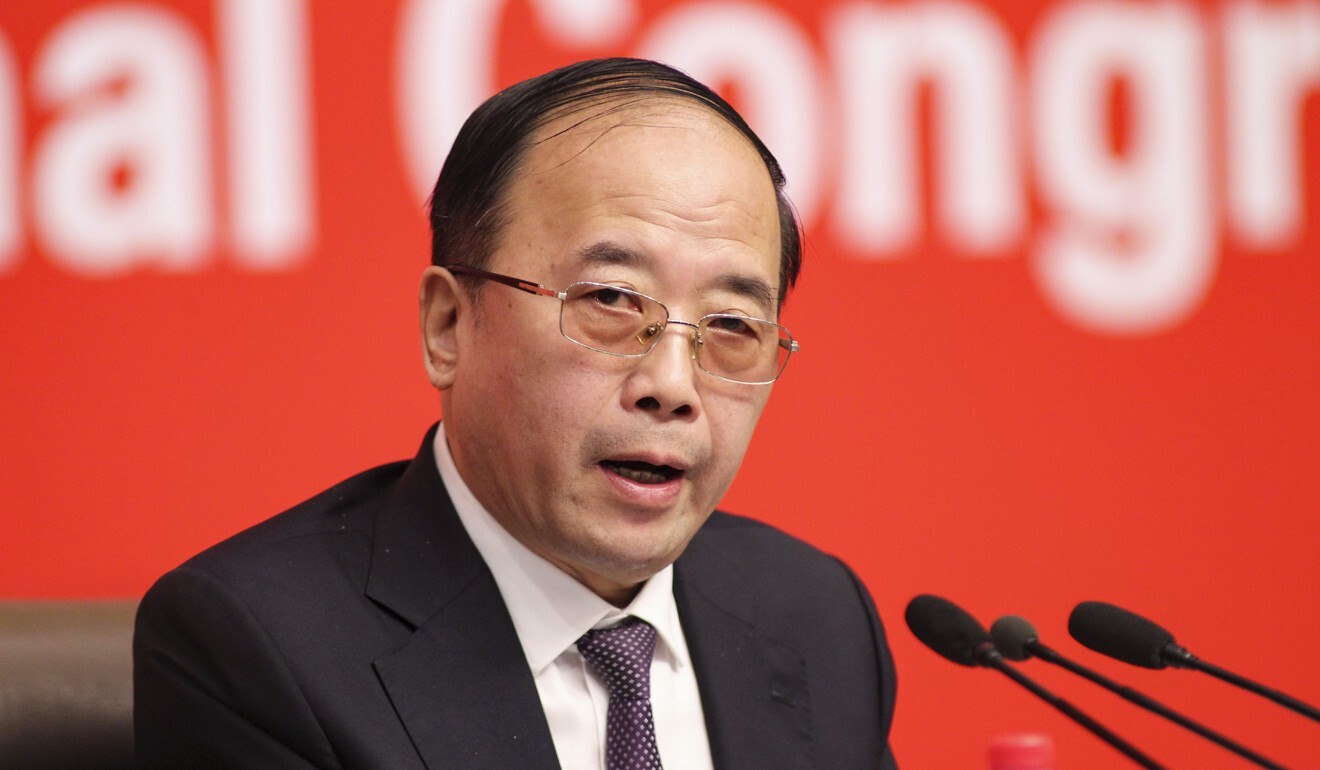
Leibold said the dependence on Beijing’s financial support for government spending in Xinjiang and Tibet – including the internment programme – was a growing concern given the economic headwinds from the coronavirus pandemic.
That support from Beijing accounted for 94 per cent and 87 per cent of provincial-level funding in Xinjiang and Tibet, respectively, last year, according to regional government financial reports.
This is incredibly expensive but [is] of course shoring up stability in both [Xinjiang and Tibet]
Xi said that over the past six years the central government had injected more than 2 trillion yuan (US$300 billion) into Xinjiang and the paramilitary Xinjiang Production and Construction Corps. The region received another 96 billion yuan in support from other provinces.
The result, according to Xi: 2.9 million people, or 95 per cent of those living below the poverty line in Xinjiang, have been lifted out of extreme poverty since 2014 and the economy is expanding at an annual average of 7.2 per cent.
“This is incredibly expensive but [is] of course shoring up stability in both [Xinjiang and Tibet],” Leibold said.
“If the Chinese economy were to continue to slow, there would be renewed pressure on Beijing to work out a less taxing approach to running those two areas … the tension between the security imperative and economic imperative come head to head.”
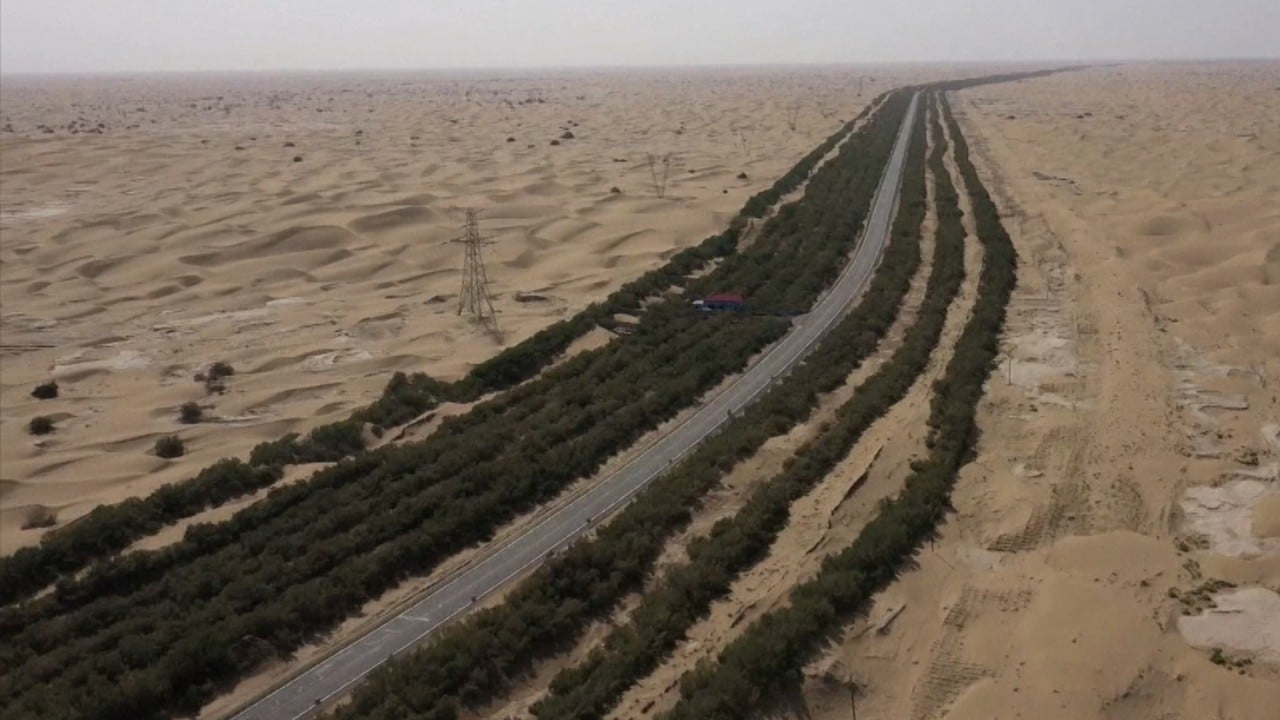
01:50
How China’s longest desert road in Xinjiang was opened up to traffic
Wu said the huge financial subsidies – which could be traced back to Beijing’s ethnic minority policies starting in 1949 – had made some big cities in the regions look impressively developed from the outside, giving Beijing more confidence to showcase them to the outside world.
“More opening up may partly solve the problems faced by Xinjiang and Tibet, especially on economic development,” he said.
“But economic interest is not everything – Beijing has to also address the spiritual demands of the people … You cannot really solve the social problems by relying on conventional indoctrination or vocational training. It calls for matching opening up in religion and allowing people to have open discussions.”
Aside from the shift in focus to the economy, analysts agreed that official information from the two meetings suggested Beijing’s policies in the regions – like “Sinicisation” of Islam and Tibetan Buddhism and reducing emphasis on ethnic identity – would continue.
Last month, Washington imposed restrictions on importing cotton and apparel products from Xinjiang, citing concerns over alleged use of forced labour. US officials said the bans “are not going to be the last”.
Leibold said: “There is no doubt [Beijing is] concerned about this, what this might do to the economy of Xinjiang. But I don’t think you’re going to see Beijing reverse course on policy on Xinjiang and Tibet. That’s all part of Xi’s legacy and they can’t be seen as to be giving in to Western pressure.”
He said the work conferences also made clear that stability was “the absolute foundation stone of the party’s governance” in the two regions.
“Here you see the contradiction that on the one hand the party is obsessed with stability and the need to securitise both Xinjiang and Tibet – carefully monitor its borders, the movement of people internally as well as externally – and the desire on the other hand … to open up both these regions not only domestically, but also internationally,” Leibold said.